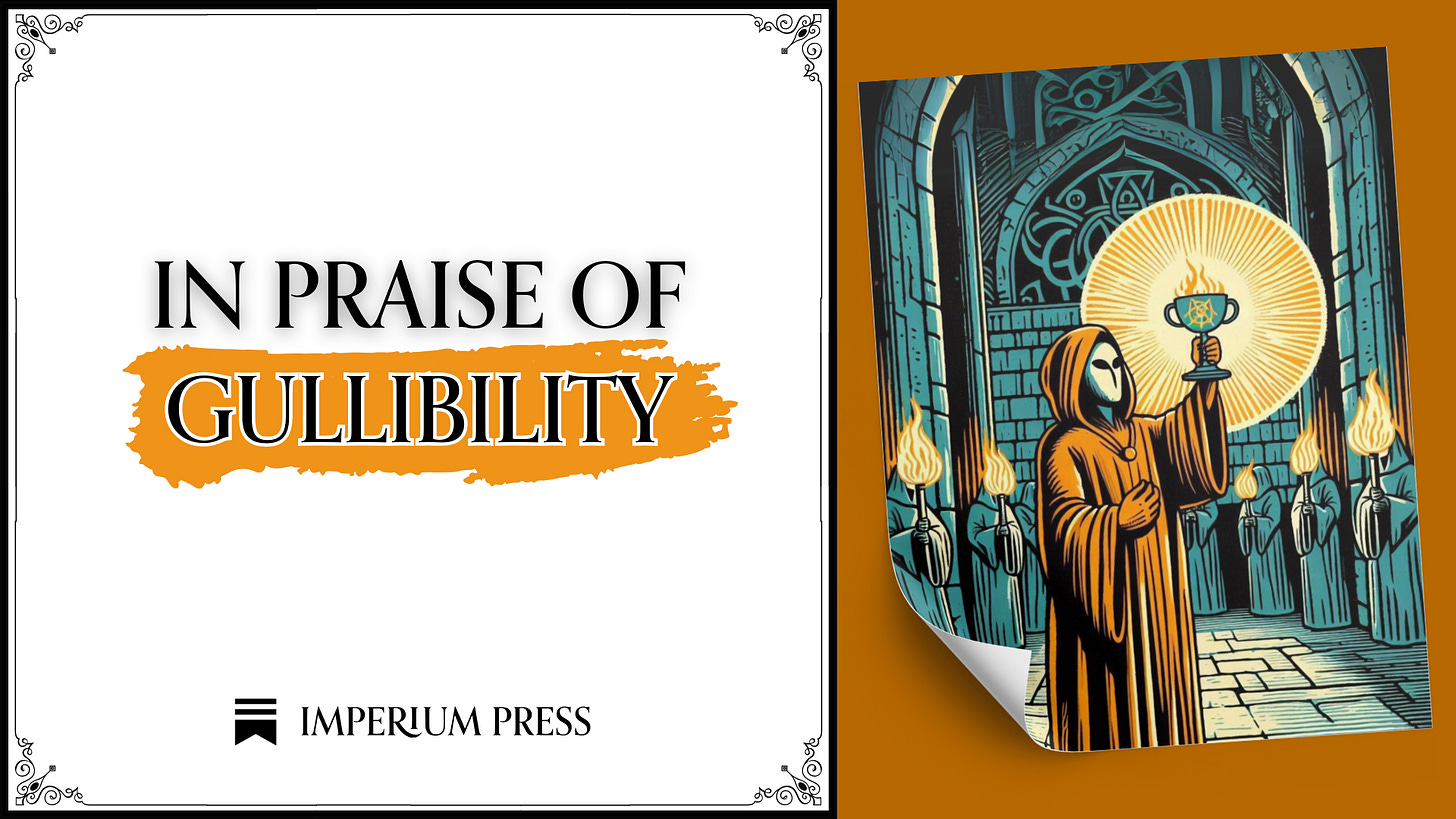If you prefer the audio of this article, click here.
COVID was the first major storm the radical right has had to weather since its Trump-era renaissance, and it has separated the wheat from the chaff. While some have maintained their positions, the trauma of the past two years has sent others scurrying back under the warm blanket of pre-COVID liberal priors, whether anti-statism, democracy, capitalism, or others.1 One of the important threads that binds these liberal particulars together is what I have termed propositionality, the idea that we are what we believe. You know this better in its specifically political manifestation—“civic nationalism”.
But the idea that people cohere around shared belief is naïve. Superficially they do—men have always, at least apparently, died for beliefs. But far more often they have died for things that you can’t be argued out of, such as family, blood, soil, and shared history. Propositionality is what Marxists, with little self-awareness, call “ideology”. It is a stunted and ahistorical mode of being, and what’s more, it does not accord with our best science. In The Righteous Mind,2 Jonathan Haidt amasses a huge amount of evidence in the social sciences that sentiments are the dog wagging the rational tail; it’s not only that the sentiment comes before the reasoning, it’s not even just that the sentiment determines the outcome of the reasoning, but without the sentiment, the reasoning can’t even succeed at reasoning.3 Reason grows out of a whole background of pre-rational priors which are unstated, unreflective, instinctual, and habitual. It is the two horses, particularly the appetitive and passionate one, that drive Plato’s charioteer, not the other way around.
So, it seems at first blush that not only is reason a slave to the passions, but so are we. To a great extent this is true, but we are not completely at sea, unable to change our minds.





